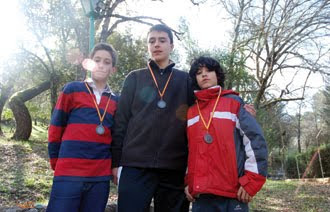340. Are they learning through playing?

How can a learner actually learn? Read what this scholar put: "You've got to be willing to put in your fair share of effort, and that effort amounts to lot more than just sitting back and listening to some tapes. If you dive into this language with a willingness to try hard, and with a belief that you can actually do it, then you will be successful! " (1) H. D. Brown(1989) A Practical Guide to Language Learning. A Fifteen-Week Program of Strategies for Success . New York: McGraw-Hill . I owe a lot to this expert, for my teaching: he has great ideas: he hits the target, believe me. Photo from ledenav artelista com. Thank you.















